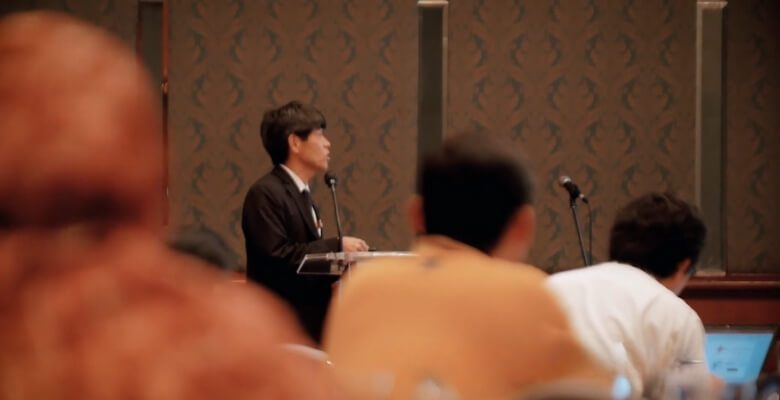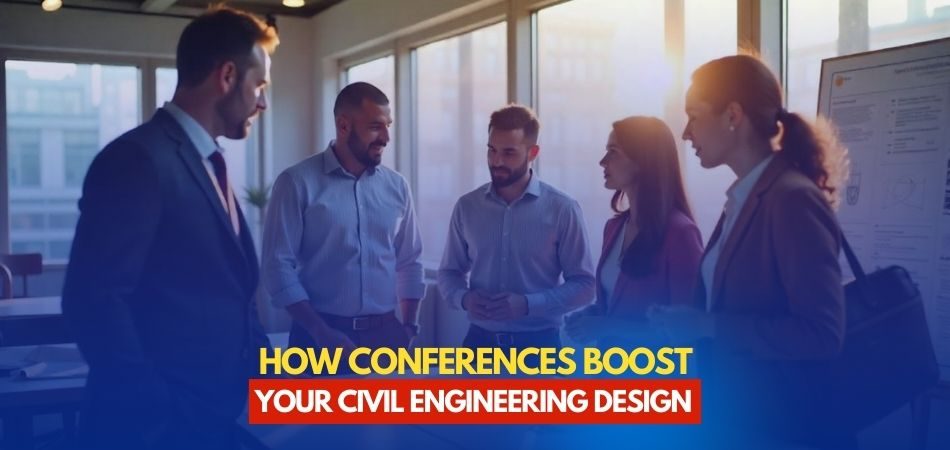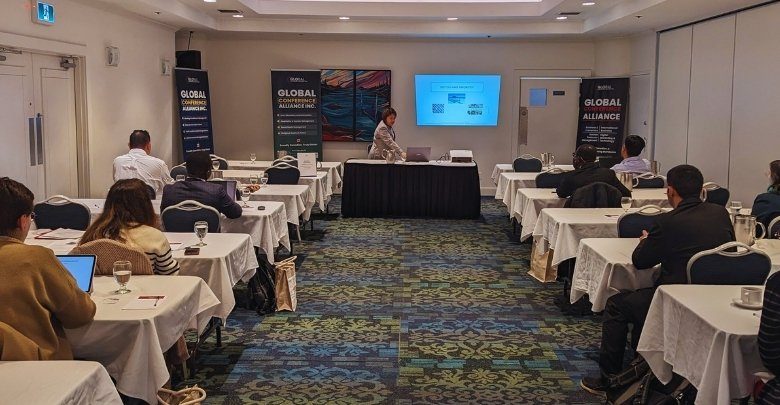The field of civil engineering is constantly changing. Keeping your design skills sharp requires continuous learning, and industry conferences are a great resource. Taking part in these events allows you to stay on top of the industry’s pulse. But how do conferences boost your civil engineering design?
They offer knowledge exchange on the latest innovations and best practices. You’ll network, attend hands-on workshops, and explore new technologies. Presenting your work brings valuable feedback, and staying updated ensures your designs remain relevant and inspired.
Are you interested in learning more about design? Attending conferences has many benefits, so read on to find out what they are.
Why Conferences Hold Such Importance in Civil Engineering Sectors?
Conferences serve as a vital nexus for civil engineers looking to expand their horizons and deepen their expertise. These events are not just about the formal proceedings; they embody the spirit of collaboration and innovation. Here’s why they’re indispensable in the civil engineering sectors:

- Knowledge Sharing: At conferences, the latest civil engineering research and innovations are shared, enriching attendees’ expertise.
- Networking: These gatherings provide a space to meet fellow professionals, opening doors to new collaborations and partnerships.
- Professional Development: Through participating in workshops and presentations, attendees sharpen their skills and deepen their industry knowledge.
- Technological Advancements: Engineers stay current by exploring the newest technologies and tools that conferences showcase.
- Feedback and Critique: Presenting work allows engineers to garner insights and constructive criticism from peers and experts.
- Regulatory Updates: Conferences are a source for the latest updates on regulations and standards, ensuring practices are up to par.
- Inspirational Exposure: Witnessing groundbreaking projects and solutions inspires engineers to innovate and challenge conventional approaches in their projects.
Types of Conferences Beneficial for Civil Engineers
For civil engineers, attending the right types of conferences can be transformative, opening doors to innovative knowledge, practical skills, and essential industry connections. Each conference type offers distinct benefits, allowing engineers to target specific areas of growth. Here’s a closer look at the types of conferences most beneficial in this field:
Industry-Specific Conferences
Industry-specific conferences delve into the latest advancements and research tailored to civil engineering, providing attendees with highly relevant insights. Through presentations and expert panels, engineers gain firsthand knowledge of cutting-edge innovations that directly influence their work. Whether it’s a regional event or an international civil engineering conference in Canada with invitation letter, such gatherings offer a focused environment for participants to deepen their understanding of sector-specific challenges and effective solutions, fostering a more comprehensive grasp of the industry’s evolving landscape.
Technical and Skill-Building Workshops
These hands-on workshops are designed to enhance technical skills through practical learning, helping engineers stay adept with essential tools. Sessions cover everything from advanced software applications to field measurement techniques, sharpening critical skills. By participating in these interactive workshops, attendees gain valuable practice and immediate feedback. Such sessions offer engineers the chance to refine skills essential for modern civil engineering projects.
Research and Academic Conferences
For those involved in research, academic conferences offer a platform to present findings and explore emerging ideas. Civil engineers can engage with scholars and peers, exchanging knowledge that pushes the field forward. These events often feature in-depth discussions on new methodologies and theories relevant to academic and practical work. Presenting research here allows engineers to gain feedback, improving the quality and impact of their work.
Networking and Professional Development Conferences
Professional development conferences foster connections, bringing together civil engineers, industry leaders, and emerging professionals in one space. Attendees can find mentors, collaborators, or partners for future projects, expanding their professional network. The focus on career growth and professional relationships enhances each engineer’s marketability and industry reach. By attending, engineers gain access to a network that can support their career progression.
Regulatory and Standards Conferences
These conferences are essential for engineers who need to stay updated on evolving industry regulations and compliance standards. Experts explain regulatory changes, allowing engineers to adapt their projects to new requirements. Knowledge gained here helps engineers avoid compliance issues, ensuring their projects meet industry standards. Engineers leave with the insights needed to incorporate updated regulations into their work effectively.
How Conferences Boost Your Civil Engineering Design?
Attending conferences is a fantastic way for civil engineers to enhance their design skills and industry knowledge. Each conference experience offers unique methods to improve your approach and stay current in a constantly evolving field. Let’s explore the ways conferences can effectively boost your civil engineering design capabilities.
Gaining Fresh Insights Through Knowledge Exchange
Conferences create a dynamic platform where engineers access the latest civil engineering research and design practices. Engaging with new studies and methodologies inspires attendees to consider innovative techniques for their own projects. This exchange of ideas allows engineers to implement advanced strategies, continuously elevating the quality of their design work.
Connecting with industry experts further enriches the learning experience, as they share firsthand insights and problem-solving approaches. By adopting relevant strategies, engineers can address complex design challenges more effectively. Knowledge exchange at conferences empowers engineers with solutions that might be challenging to find in their day-to-day work.
Building Valuable Connections through Networking
Networking at conferences opens doors to valuable professional relationships, offering fresh perspectives and collaboration opportunities. Engineers benefit by interacting with like-minded professionals who often share practical tips and design strategies. This exposure can lead to partnerships that bring diverse insights to future design projects.
Connections made during these events often provide ongoing support and advice, which can be transformative for new design approaches. Collaborating on projects or receiving guidance from experienced peers adds an extra layer of refinement to one’s work. Networking becomes a wellspring of inspiration, pushing engineers toward creative solutions.
Enhancing Practical Skills with Workshops and Hands-On Sessions
Workshops and hands-on sessions at conferences allow engineers to learn practical design skills in an interactive setting. These sessions often cover techniques and tools that directly impact project efficiency and quality. Engineers can test new methods firsthand, making it easier to integrate them into their everyday work.
Sessions led by experts give participants the chance to understand advanced tools and applications that boost design precision. Mastering such techniques in a hands-on environment enhances an engineer’s confidence in their practical abilities. These workshops ultimately bring a tangible improvement to design skills, directly benefiting future projects.
Exploring Cutting-Edge Solutions with Technology Showcases
Civil engineering conferences frequently highlight new technologies and software that transform traditional design practices. Engineers get a front-row seat to advancements that make designs more sustainable, efficient, and innovative. Understanding and applying these tools can enhance project outcomes and streamline workflows.
Technology showcases often present tools for design simulations and project management, offering engineers fresh options to improve project delivery. The exposure encourages engineers to rethink traditional methods and adopt more effective design strategies. Staying aware of technological advancements ensures designs remain relevant and optimized.
Receiving Constructive Critique through Feedback Sessions
Presenting at conferences provides a unique chance to receive direct feedback from knowledgeable peers and industry experts. This feedback can reveal new angles for refining design concepts and improving overall project execution. Constructive criticism at such events becomes an invaluable resource for professional growth.
Feedback sessions inspire engineers to critically evaluate their work, identifying areas where changes can boost project quality. This reflection encourages a commitment to continuous improvement, as engineers integrate suggestions into future designs. Engaging with feedback is a powerful step toward achieving excellence in civil engineering projects.
Staying Ahead with Industry Trends and Regulatory Updates
Staying current on industry trends and regulatory standards is crucial for ensuring design relevance and compliance. Conferences provide vital updates, helping engineers stay aligned with the latest codes, trends, and sustainable practices. Attending these sessions equips engineers to address regulatory requirements confidently within their projects.
Understanding new standards allows engineers to anticipate regulatory changes that could impact future work. By staying informed, engineers can adopt proactive approaches, reducing compliance risks in project planning and execution. Conferences keep professionals in tune with the regulatory landscape, reinforcing the foundation of their designs.
Inspiring Creativity and Motivation through Innovative Examples
Seeing the impressive work of peers at conferences is both inspiring and motivating for civil engineers. Exposure to groundbreaking projects encourages engineers to think outside the box, sparking creativity in their own designs. Witnessing what others have achieved motivates engineers to strive for excellence in their projects.
The creativity on display fosters a spirit of innovation, encouraging engineers to push their boundaries. Inspiration from these examples often leads to unique, high-quality designs that stand out in the industry. Conferences provide engineers with the drive to excel and contribute meaningful innovations to their field.
How to Find a Suitable Conference for Civil Engineers?
Finding the right conference is essential for civil engineers looking to expand their skills and network effectively. A suitable event offers practical knowledge, industry insights, and valuable connections that align with your professional goals. Here’s a step-by-step guide to help you find the perfect conference tailored to your needs.
Step 1: Define Your Learning Objectives and Professional Goals
Consider what you hope to achieve from attending a conference, such as skill enhancement or networking opportunities. Identifying specific areas of interest, like sustainable design or technological advancements, will help narrow down options. Knowing your goals will guide your search, making it easier to filter relevant events. A focused approach ensures the conference you select aligns with your professional development needs.
Step 2: Research Reputable Industry Websites and Publications
Trusted industry sources like ASCE or ICE often publish comprehensive lists of upcoming civil engineering conferences. These platforms highlight reputable events, helping you avoid time spent on irrelevant options. Checking these sources also allows you to explore ways to find global civil engineering conferences that cater to diverse expertise levels. This step gives you access to conferences that are well-regarded and likely to meet your expectations.
Step 3: Consult with Colleagues and Professional Networks
Connecting with peers and mentors who’ve attended similar conferences can provide valuable recommendations and insights. They may know of events that align with your specific interests and skill level. Leveraging your professional network is a great way to discover hidden gems within the conference landscape. Recommendations from trusted colleagues often lead to highly relevant and rewarding conference experiences.
Step 4: Consider the Location and Accessibility of the Event
Evaluate whether the conference location is accessible and if the event fits within your budget and schedule. Choosing a location that’s easy to reach can make the experience more manageable and enjoyable. Some professionals prefer local conferences to minimize costs, while others seek international events for broader networking. Ensuring accessibility helps you get the most out of the event without unnecessary stress.
Step 5: Review Conference Agendas and Speaker Lineups
Reviewing agendas and speaker lists provides insight into the content quality and relevance of the conference. Prioritize events that feature respected industry leaders or topics directly aligned with your goals. By examining the planned sessions, you’ll be able to gauge whether the conference will truly benefit your career. A conference with a strong lineup and agenda is more likely to deliver valuable insights.
How Can Civil Engineers Utilize a Conference Experience?
Making the most of a conference experience is key for civil engineers seeking to grow their skills and connections. With the right approach, a conference can provide invaluable learning, networking, and career-boosting opportunities. Here are some tips to help you make the most of your next event.
- Set Clear Objectives Before Attending: Define specific goals for the conference, like learning new techniques or meeting industry leaders. Having a focus helps you maximize time and gain relevant insights.
- Participate Actively in Workshops and Sessions: Engage fully in workshops to build hands-on skills that apply directly to your projects. Active participation makes learning more effective and memorable.
- Network with a PurposeConnect with professionals who share your interests to build mutually beneficial relationships. Exchanging contact information enables you to maintain these connections post-conference.
- Prepare Questions for Presentations and Panels: Having prepared questions shows engagement and can lead to deeper discussions with speakers. Asking insightful questions also helps clarify topics important to your work.
- Visit Technology Exhibits and Demos: Explore the latest tools and innovations showcased in exhibition areas to stay current in your field. These advancements may provide practical solutions for your future projects.
- Take Detailed Notes on Key Sessions: Document important points and ideas that spark inspiration for your designs and methods. Well-organized notes make it easier to revisit and implement new knowledge later.
- Reflect and Plan Next Steps Post-Conference: After the event, review what you learned and identify actions to apply this knowledge. Setting follow-up goals ensures the conference has a lasting impact on your work.
Tips to Help You Network at a Conference Effectively
Networking at a conference can be one of the most rewarding aspects, offering valuable connections, insights, and future opportunities. Knowing how to approach networking thoughtfully can turn a single event into a wealth of professional relationships. Here are some effective tips to help you network successfully at your next conference.
Prepare by Researching Key Attendees and Speakers
Identifying relevant people in advance helps you plan meaningful interactions that align with your goals. Knowing a bit about their work or specialties can make conversations more engaging. By focusing on specific individuals, you create chances for deeper connections. Preparation allows you to stand out as genuinely interested and knowledgeable.
Break the Ice with Simple, Open-Ended Questions
Starting conversations with open-ended questions invites more natural and engaging discussions. Questions like, “What projects are you excited about?” create room for professional dialogue. Such inquiries demonstrate your interest in their expertise, setting a positive tone. Thoughtful questions make networking more comfortable and authentic.
Attend Networking Events and Social Mixers
Special networking sessions at conferences are ideal for meeting new people in a casual setting. Attending mixers can lead to fruitful connections that enhance your conference experience. Networking events showcase the benefits of attending civil engineering conferences, as they bring together like-minded professionals. Engaging in these social activities makes meeting people easier and more enjoyable.
Exchange Contact Information and Follow Up Later
Exchanging contact information allows you to build a network that extends beyond the event itself. Keep interactions professional but friendly to make a lasting impression. After the conference, sending a brief follow-up message can reinforce the connection. Consistent follow-ups create stronger, longer-lasting professional relationships.
Be Open to Unplanned Conversations and Serendipitous Meetings
While planning is useful, some of the best connections come from unexpected encounters. Staying open to spontaneous conversations can lead to new perspectives and collaborations. These unplanned moments often foster connections that feel more natural and memorable. Embracing spontaneity can make networking a more enjoyable experience.
FAQ about How Conferences Boost Your Civil Engineering Design?
Conferences are an essential part of professional development, offering civil engineers opportunities to improve their design skills, network, and stay current with industry trends. Here are five frequently asked questions on how conferences specifically benefit civil engineering design.
How Do Conferences Help Civil Engineers Stay Current with Industry Standards?
Conferences keep civil engineers updated on the latest regulations and industry standards crucial for maintaining compliant designs. Sessions led by experts highlight recent changes, ensuring engineers can adjust their practices to meet evolving regulatory requirements effectively and responsibly.
What Role Does Feedback Play in Improving Design Skills at Conferences?
Presenting work at conferences allows civil engineers to receive constructive feedback from peers and industry leaders. This feedback helps identify design strengths and areas for improvement, fostering continual skill enhancement and encouraging engineers to implement refined approaches in their projects.
How Can Conferences Inspire Innovative Approaches in Civil Engineering Design?
Exposure to innovative projects and techniques showcased at conferences can spark creative ideas for civil engineers. Seeing diverse solutions encourages engineers to think outside the box, leading to more inventive and effective design strategies in their own projects.
What Are the Benefits of Attending Technical Workshops at Conferences?
Technical workshops offer hands-on learning experiences, allowing engineers to practice new techniques and tools. These sessions boost practical skills that can be directly applied to design projects, improving both efficiency and quality in civil engineering work.
How Do Conferences Strengthen Civil Engineers’ Problem-Solving Abilities?
Conferences often feature case studies and solution-focused sessions that address common challenges in civil engineering. Learning how others approach and resolve complex design issues enhances engineers’ problem-solving capabilities, equipping them with versatile techniques for tackling future projects.
Closing Remarks
Attending conferences equips civil engineers with a wealth of knowledge and connections that directly enhance their design skills and career trajectories. These events serve as a fertile ground for sharing innovative ideas and practical solutions that address the evolving challenges of the industry.
Through active participation in workshops, presentations, and networking sessions, engineers are able to remain at the forefront of technological and regulatory updates, making their designs not only compliant but cutting-edge.
Understanding how conferences boost your civil engineering design? It’s clear that these gatherings are crucial for staying informed, inspired, and interconnected. Engage deeply in your next conference experience and watch as it transforms your approach to civil engineering.







